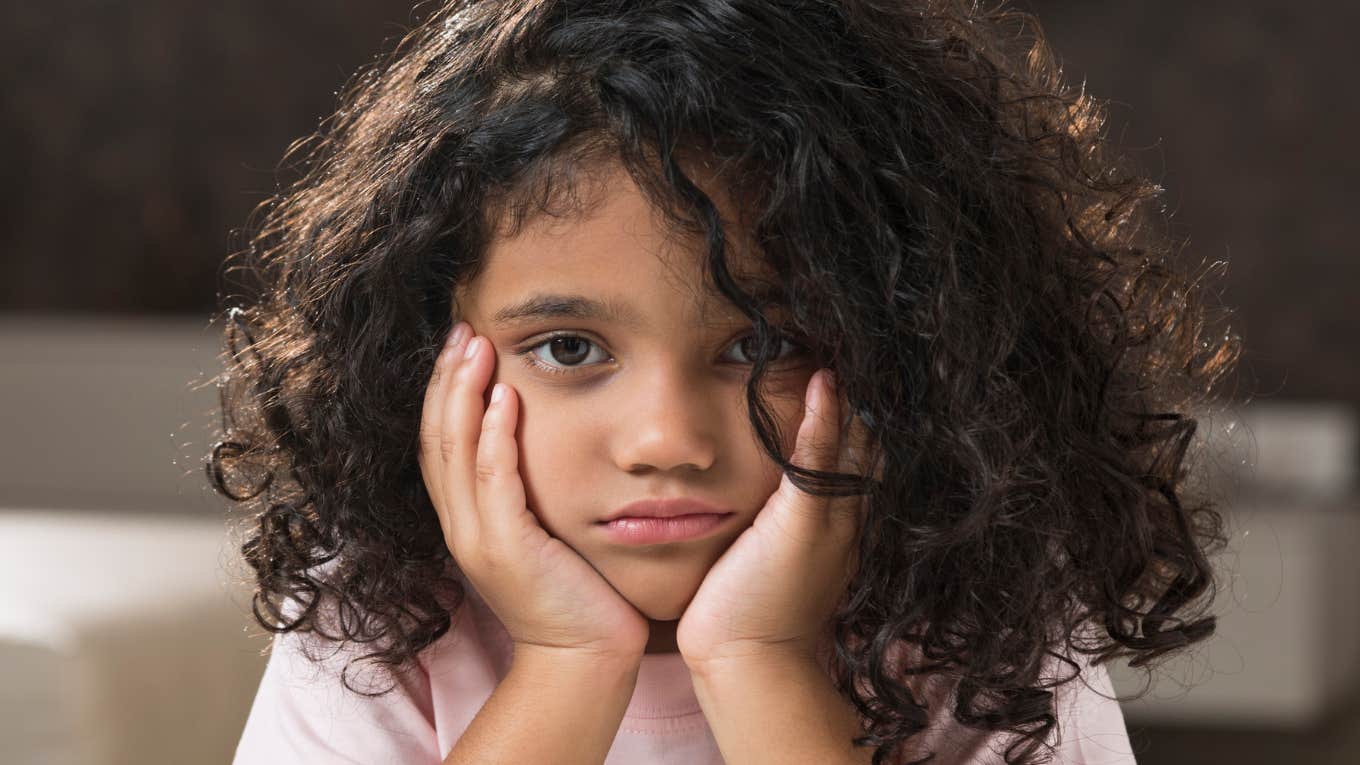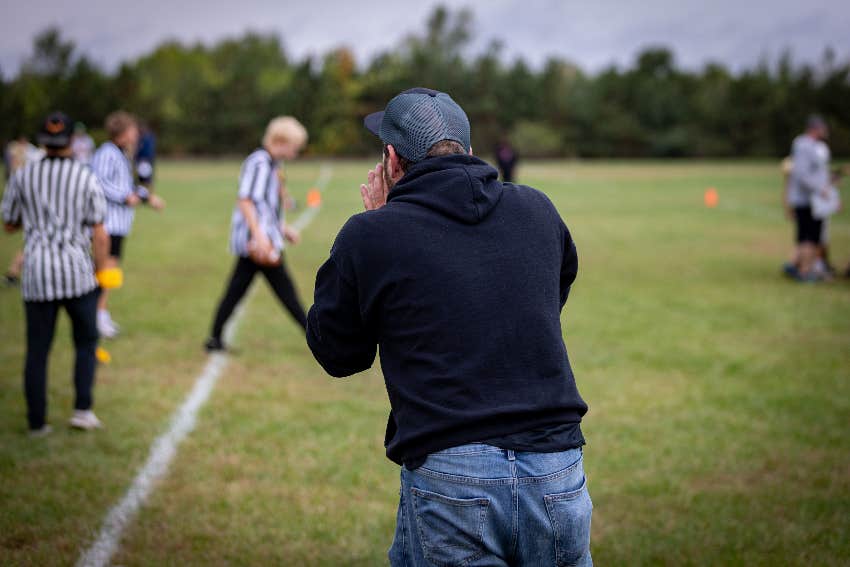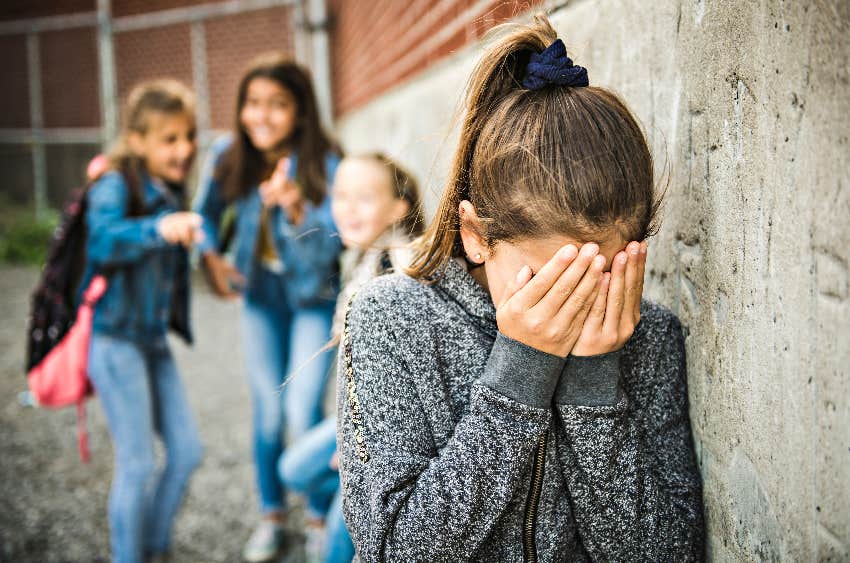8 Behaviors Of Parents Who Cause Their Kids To Grow Old Lonely And Isolated, According To Psychology
Men who are raised in these unappealing ways often end up alone and ostracized.
 Deepak Sethi | Canva
Deepak Sethi | Canva Genetics is only half of the game. The other half is upbringing. You learned about nature versus nurture in your high school psychology class. Kids are a direct product of their environment, so what happens when parents continuously set bad examples and teach poor behaviors?
The answer is simple. Kids who are taught poor behaviors by their parents grow old lonely and isolated. Nasty behaviors fall across a spectrum and the wide range depends on a person's tolerance.
It's obvious. When a parent models nasty behaviors, their children will demonstrate nasty behaviors. Their nastiness will in turn rub off on my kid or your kid, and to be blatant, that's something nobody wants.
Here are the behaviors of parents who cause their kids to be lonely and isolated as they grow old:
1. Using violence as a solution
I can observe more in thirty minutes at the grocery store than I can in one hour of Jerry Springer. A few weeks ago I overheard the most atrocious conversation. It was between a grandma and her seven or eight-year-old grandson. She was instructing him to fight.
Granny's words: "Next time, don't wait to go tell the teacher. You just hit him right back. Show him you're not gonna take his abuse and then you'll see that he leaves you alone."
Into the scene walks the young mom carrying a box of cereal. Granny reiterates to the boy's mother what she instructed her grandson to do. The mother nods her head in agreement.
If a high school student jumps another high school student behind a building then yes, fighting back in self-defense is warranted. But teaching a seven-year-old boy to fight back is simply ludicrous. I wanted to run my mouth but decided interjecting my opinion to these two ladies would likely leave me with a black eye and not the turkey and yogurt I had come for.
Unless self-defense is truly warranted, retaliation and physical violence isn't a better solution than counting on the people in place to protect us. Could this little boy grow into a man who takes matters into his own hands instead of calling the police? Quite possibly.
2. Poor sportsmanship
 Jesse Hamble / Shutterstock
Jesse Hamble / Shutterstock
We've all seen the parent who lives vicariously through the talents of their child and therefore acts overly aggressively on the sidelines — blaming, screaming, and cursing. Those parents are the first to say their child's team lost because of XYZ, but certainly never because the opposing team was better.
At my daughter's soccer game this past weekend, a mother from the opposing team yelled throughout the game, "Get her! Get her!" Seriously? Get my daughter? This isn't the boxing ring — it's soccer. Kids must learn to value putting forth their best, not being the best. If you forever place your child on a pedestal, they'll forever be set up for failure.
Poor sportsmanship can lead to a range of negative consequences, including decreased enjoyment of the sport, damaged team morale, negative impacts on self-esteem, increased aggression, reduced performance, and a negative perception of the athlete or team, both within the sporting community and beyond.
A study published in the International Journal of Sport and Exercise Psychology concluded that this could affect the athletes' social and personal relationships, undermining sports participation's positive developmental aspects.
3. Disrespecting authority figures
While we're on the topic of sports, whether it's badgering the ref or being combative with the coach, if you're undermining an authority figure in front of your child then you're in the wrong. This goes for contradicting a teacher, too.
Kids must learn that everyone makes mistakes, including adults. It's part of life. If you need to express an opinion, do it in a calm, respectful manner and not in front of your children. By belittling an authority figure in front of your child, you're stripping away any respect your child has for that person. This will make all future interactions more difficult for everyone.
4. Driving like a maniac
Oh no, you did not just cross a double yellow line to pass me, with two kids sitting in the back of your car. Why yes, yes you did. And here I was already going seven miles over the speed limit. It's time for some truth serum and l hope you take it before your children get licenses: It's not okay to break the law and demonstrate road rage in front of your child.
Children regularly observe their parents engaging in unsafe driving behaviors, which can significantly influence their driving habits later in life. A 2008 study found that this often leads them to adopt similar risky behaviors like speeding, distracted driving, or aggressive maneuvers, as they essentially learn by example and internalize these actions as everyday driving practices. Children naturally mimic their parents' actions, especially when it comes to behaviors they see modeled frequently.
5. Taking advantage of other people's mistakes
Although most parents won't outwardly steal in front of their children, some do it knowingly at the cost of someone else's mistake. How many times have you realized you haven't been charged for something while standing at the register? Do you call attention to the mistake and use it as an opportunity to teach your children not to take advantage of another person's error?
My mother modeled this when I was growing up. She would go back to stores a week later to pay for things after realizing she wasn't charged appropriately. If you want honest kids, exhibit honest behaviors.
Sociologist Dr. Christine Carter revealed that kids can’t own up to their mistakes until they figure out they’re independent people with agency over their lives. “Children don't realize they control their behavior,” she explained. “If you correct their mistakes and solve their problems, kids never learn how to do it themselves,” Dr. Carter explained. Parents who balance strict rules with unconditional support and abiding love and affection make their kids better people.
6. Being a bully
 Lopolo / Shutterstock
Lopolo / Shutterstock
Why should you refrain from verbally bashing other people in front of your children? For starters, if they repeat it to someone they shouldn't then you're busted. But more importantly, by doing so you're helping to create the person in high school we all hated the most.
Some bullies copy behavior that they see at home. Research by Nemours KidsHealth explained that kids who see aggressive and unkind interactions in the family often learn to treat others the same way. Kids who are taunted learn that bullying can translate into controlling children they see as weak.
7. Avoiding general life responsibility
Holding down a job is important. So is showing up. Taking care of your yard is important and so is repaying debt.
Model how to be a productive citizen who cares about and takes care of the community. After all, it's the community you're leaving your grandchildren. If global responsibility isn't transferred from ourselves to our children then our species will become no different than any other roaming mammals.
8. Showing intolerance/apathy for those less fortunate
Leave out nasty comments when you pass a homeless person asking for money. Teach your kids to hold open doors, especially for the elderly and disabled.
Help to break down prejudices and stigmas by not perpetuating them. Even if your life is hunky-dory right now, it doesn't mean it will be forever. At some point in your life, you're going to find yourself counting on others to extend tolerance and empathy your way.
It's true. We're all going to blow it at some point. We already have. We're human. It's how the term "parenting fail" came to fruition.
But if we want to raise well-mannered, independent, and respectable children, then as parents we must display and radiate those same qualities. At least most of the time. At least when they're watching. Then at least we know we tried.
Alex Alexander is a pseudonym for a writer who chose to not have their identity disclosed. The author is known to the YourTango editors.

